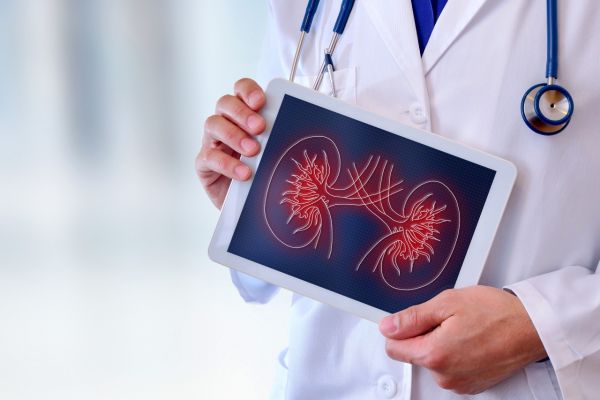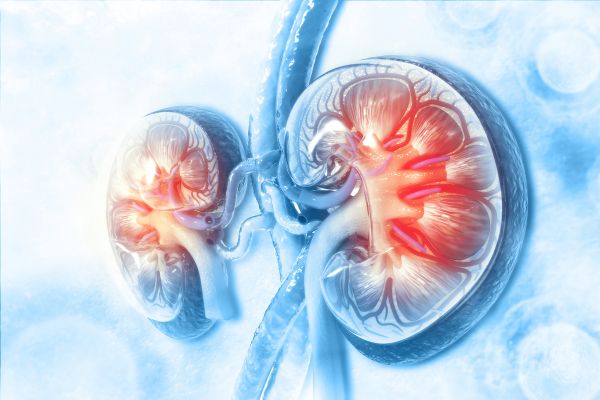Abdominal and back pain, blood in the urine, vomiting or fever – all could be signs of serious kidney issues. However, it's unlikely that any of these ailments is a symptom of kidney cancer. That's because most kidney cancers don't have any noticeable symptoms.
"The most common symptom of kidney cancers we find is blood in the urine, but even then, it might not be noticeable to the patient. It may only be detectable on a laboratory test," says Eric Kauffman, MD, Assistant Professor of Oncology in the Department of Urology at Roswell Park Comprehensive Cancer Center.
Doctors diagnose most kidney cancers in patients between the ages of 65 and 74. While a more advanced tumor can grow large enough to cause pain in the back or a palpable mass in the abdomen, this is uncommon. Instead, kidney cancer likely will be found inadvertently through a diagnostic test obtained for a purpose unrelated to the kidney, before the patient has any actual symptoms.
"With today's modern imaging, we tend to find cancer smaller and smaller in the kidney because we're getting so many scans for a variety of other reasons," says Dr. Kauffman. “When patients go to the emergency room or their primary care doctors, it's very common for them to get CT scans or other abdominal imaging for complaints such as abdominal pain, which is often due to different causes unrelated to the kidney. But as a result, we end up finding more and more of these very small tumors that grow very slowly and would have never hurt the patients within their lifetime. These small tumors would have been something that the patient died with, but not because of. Half of all renal tumors that are diagnosed these days meet our criteria of what we consider small, which is under the size of about four centimeters."
If a CT scan or imaging does reveal the presence of a small kidney cancer, one of the recommended treatment approaches is what's known as active surveillance, or simply monitoring the tumor periodically over time, with a plan for treatment if the tumor begins showing any concerning features.
"The vast majority of small kidney cancers do not have the ability to spread outside of the kidney, and they grow so slowly that it's unlikely they would get to the point of being dangerous in the patient's lifetime," says Dr. Kauffman. "When active surveillance is performed properly, treatment can be initiated in a timely fashion, far in advance of when the tumor would become dangerous. This way, we are able to avoid unnecessary treatment in a lot of patients."
Why Roswell Park for Kidney Cancer?
Find out more of what makes Roswell Park unique in treating kidney cancer.
Learn MoreAvoiding treatment whenever possible saves the patient from the complications it can cause, including lost kidney function, bleeding or internal urine leakage, among other problems. However, if a tumor is bigger in size, treatment is important to prevent the occasional spread outside the kidney, which usually is lethal. The most effective curative treatment is the surgical removal of the tumor or entire kidney, although some tumors can be “ablated” by freezing or burning them using a probe passed through the skin. If a tumor has spread outside the kidney, treating the patient with medication such as immunotherapy or drugs that prevent new growth of blood vessels is the best option.
Even though they're likely not signs of kidney cancer, symptoms such as severe abdominal and back pain and blood in urine could be signs of other serious kidney issues like kidney stones, injury or infection. If you or a loved one are experiencing these symptoms, you should contact your primary care physician for examination.



